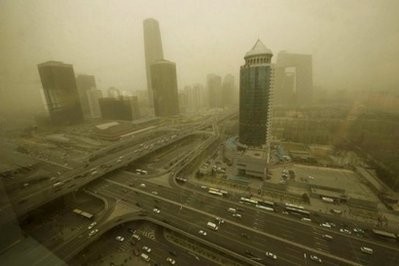PARIS (AFP) – Carbon pollution and over-use of Earth's natural resources have become so critical that, on current trends, we will need a second planet to meet our needs by 2030, the WWF said Wednesday.
In 2007, Earth's 6.8 billion humans were living 50 percent beyond the planet's threshold of sustainability, according to its report, issued ahead of a UN biodiversity conference.

"Even with modest UN projections for population growth, consumption and climate change, by 2030 humanity will need the capacity of two Earths to absorb CO2 waste and keep up with natural resource consumption," it warned.
If everyone used resources at the same rate per capita as the United States or the United Arab Emirates, four and a half planets would be needed, it said, highlighting the gap in "ecological footprint" between rich and poor.
The "Living Planet" report, the eighth in the series, is based on figures for 2007, the latest year for which figures are available.
It pointed to 71 countries that were running down their sources of freshwater at a worrying, unsustainable rate.
Nearly two-thirds of these countries experience "moderate to severe" water stress.
"This has profound implications for ecosystem health, food production and human wellbeing, and is likely to be exacerbated by climate change," WWF said.
Signatories to the UN's Convention on Biological Diversity (CBD) are to meet in Nagoya, Japan, from October 18-29 to discuss ways of addressing Earth's dramatic loss of species.
The UN named 2010 as the International Year of Biodiversity. Under Target 7b of the Millennium Development Goals, UN members pledged to achieve by 2010 "a significant reduction" in the rate of wildlife loss.
Biologists say many species, especially mammals, birds and amphibians, are in headlong decline, their numbers ravaged by habitat loss, hunting or the likely impact of climate change.






)

















